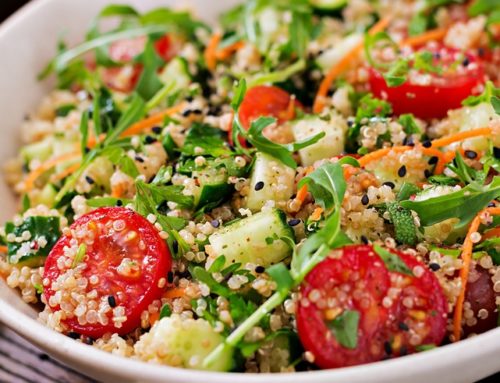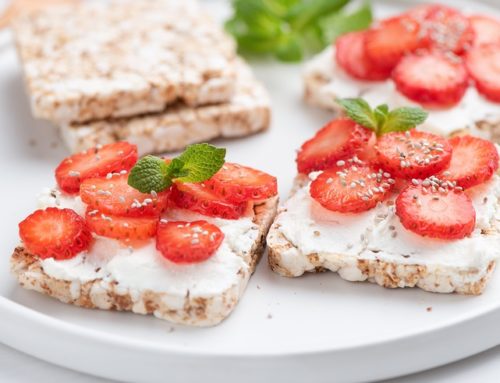Are you feeding your skin? Did you know that you can eat certain foods to help discourage premature aging? We can’t prevent the natural chronological aging process (though many try!), but there are a few vitamins that have shown promise in keeping our skin healthy and vibrant. We often think about the nutrients in our skin care products, but the nutrients in our diets can be effective as well. Read on for some of the most important ones that you can add to your meals or snacks today.
Vitamin C (L-ascorbic acid). This water-soluble vitamin can be used both topically and orally by those seeking good skin care. It is an essential component of collagen production, is a free-radical scavenger, and works alongside Vitamin E as a photoprotectant, which is a fancy term for protection from the sun’s damaging rays[1]. The richest dietary sources of Vitamin C are fruits and vegetables, including citrus fruits, strawberries, and dark green vegetables, such as kale, spinach, and broccoli.
Vitamin E (Tocopherols). This fat-soluble vitamin also has both topical and oral uses when it comes to skin care. Like Vitamin C, it is a free-radical scavenger, and it works with Vitamin C to guard the skin from UV damage[2]. In the diet, Vitamin E can be found in vegetables, vegetable oils, nuts, and seeds.
Vitamin A (Carotenoids). This is a biggie when it comes to skincare. Carotenoids are a family of compounds derived from Vitamin A, including β-carotene, astaxanthin, lycopene, and retinol. These are highly effective antioxidants in the skin, and they also have photoprotective properties. Studies have shown that diets high in β-carotene and lycopene increase the levels of these nutrients in the skin tissue and enhance protection against UV damage[3],[4]. Good dietary sources of Vitamin A include pumpkin, sweet potato, squash, carrots, and tomato.
Vitamin D. This fat-soluble vitamin is called the “sunshine vitamin” because it is actually made in the skin tissue during sun exposure. Vitamin D has been shown to protect against UVB-induced skin damage[5] and skin cancer risk[6]. Aside from being exposed to the sun, we can get Vitamin D in our diets from fatty fish, egg yolks, and Vitamin D-enriched dairy and cereal products.
These are just a few of the important nutrients involved in good skin care from within. Stay tuned for articles on other skin-friendly nutrients in the diet and good skin care practices to help you get to your healthiest skin yet!
[1] Placzek M, Gaube S, Kerkmann U, Gilbertz KP, Herzinger T, Haen E, et al. Ultraviolet B-induced DNA damage in human epidermis is modified by the antioxidants ascorbic acid and D-alpha-tocopherol. J Invest Dermatol. 2005;124:304–7.
[2] Fryer MJ. Evidence for the photoprotective effects of vitamin E. Photochem Photobiol. 1993;58:304–12.
[3] Stahl W, Heinrich U, Jungmann H, Sies H, Tronnier H. Carotenoids and carotenoids plus vitamin E protect against ultraviolet light-induced erythema in humans. Am J Clin Nutr. 2000;71:795–8.
[4] Stahl W, Sies H. Carotenoids and protection against solar UV radiation. Skin Pharmacol Appl Skin Physiol. 2002;15:291–6.
[5] Dixon KM, Deo SS, Wong G, Slater M, Norman AW, Bishop JE, et al. Skin cancer prevention: a possible role of 1,25dihydroxyvitamin D3 and its analogs. J Steroid Biochem Mol Biol. 2005;97:137–43.
[6] Glossmann H, Vitamin D. Vitamin D, UV, and skin cancer in the elderly: to expose or not to expose? Gerontology. 2011;57:350–3.





